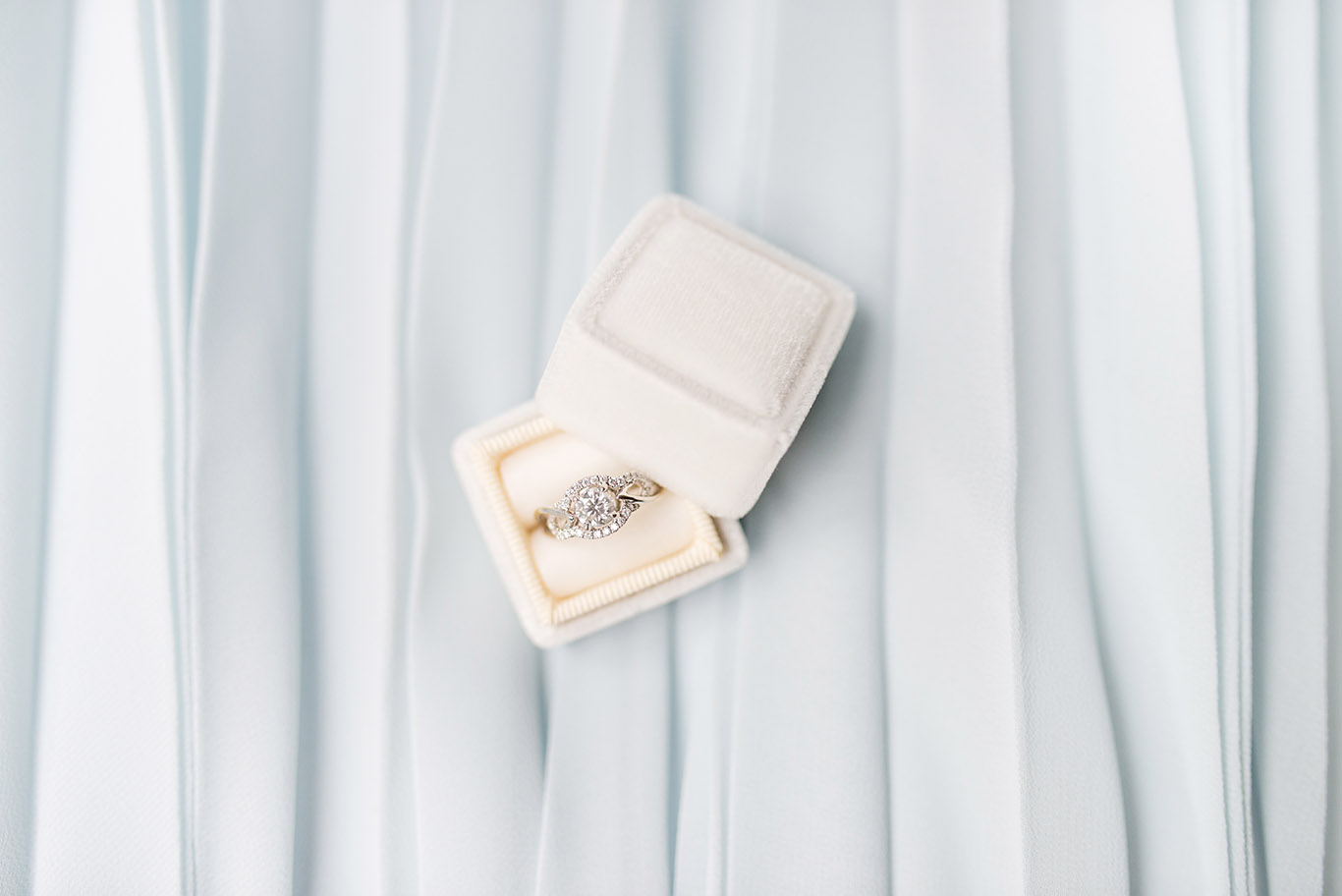When emotions are running high and a man loves a woman he wants to pop that special question – will you marry me? Almost always there is a beautiful diamond ring involved, but what happens if the marriage doesn’t happen? Does the man get the ring back or does the woman get to keep it? And what happens in the case of same-sex couples? Do pre-nups offer protection? If there is a dispute, which court hears the matter?
This article explores these questions and addresses how the state of California treats engagement rings and other gifts in contemplation of marriage.
CURRENT CALIFORNIA LAW
In California we turn to a law dating back to 1939 which specifically addresses engagement rings and other gifts in contemplation of marriage – Civil Code section 1590; it states:
Where either party to a contemplated marriage in this State makes a gift of money or property to the other on the basis or assumption that the marriage will take place, in the event that the donee refuses to enter into the marriage as contemplated or that it is given up by mutual consent, the donor may recover such gift or such part of its value as may, under all of the circumstances of the case, be found by a court or jury to be just.
In this case the “donor” is the person (i.e., the man) giving the engagement ring, and the “donee” is the person (i.e., the woman) receiving it. A gift in contemplation of marriage can be revoked, unlike other gifts. Thus, California law is very clear on what happens to the ring – if the woman calls off the wedding, it goes back to the man. Also, if both parties agree that the wedding is off then the man gets the ring back.
This California law has wide ranging impact for property given in contemplation of marriage. In an important case on the subject, Shaw v. Shaw (1964) 227 Cal.App.2d 159, a man and woman lived together for four years. He placed her name on real property because he relied on her promise that she would marry him when her divorce was final. The couple separated before marrying and the woman eventually married another. The court awarded all property back to the man because she failed to marry him. This has an impact on our society today because of the number of couples living together before marriage.
WHAT IF THE MAN CALLS THE MARRIAGE OFF?
It seems to be implied by the law that the man would not receive the ring back because he called the marriage off. This is the assessment of a rather old case, which is still good law, holding that: “the clear meaning of the quoted statute is that the donee (i.e., the woman) of an engagement ring is entitled to retain possession thereof when the marriage contract is breached by the donor (i.e., the man) without any fault on donee’s part.” Simonian v. Donoian (1950) 96 C.A.2d 259.
HOW CAN A PRE-NUP HELP?
We often hear in celebrity divorce cases how the engagement ring is frequently referenced in a pre-nup and that it goes back to the woman, as in the divorce case of Khloe Kardashian where she was able to keep her one million dollar engagement ring. See Hollywood Life by Bonnie Fuller (Dec. 13, 2013) http://hollywoodlife.com/2013/12/13/khloe-kardashian-prenup-lamar-odom-divorce-split. But is it really necessary to put it in the pre-nup?
The answer is: not really. Once the parties are legally married, then the conditions of California law regarding giving the ring back do not apply. Civil Code section 1590 deals with what happens if a marriage is called off. If there is a marriage, then the terms of giving the ring are satisfied, and it becomes the sole property of the woman and it is not necessary for her return it to the man. However, it is always the best practice in a pre-nup to include who owns all the property, so as to make it complete and without any ambiguity. Such as in the case of a million dollar ring – who wants to make that mistake?
It may also be useful to have language in a pre-nup that the woman should not get to keep a costly ring, should certain things happen in a marriage. For example, a man could ask that an expensive million dollar engagement ring go back to him should the woman be found to be unfaithful during the marriage.
WHAT IF HE CHEATS ON ME BEFORE WE ARE MARRIED?
The parties can enter into a contract before marriage, such as a pre-marriage agreement between the prospective spouses that would specifically be made enforceable before a marriage. Such a scenario might cover if the man is unfaithful, then the woman should be able to keep the engagement ring, even if she calls off the marriage before they are legally married because she finds out that he has been unfaithful to her.
Without this type of protection under California law, there is no clear authority that states that a woman who finds a man to be unfaithful and calls off the marriage would be entitled to keep the ring. Her only protection is if it is in a pre-marriage agreement in writing. Of course, this would take all the romance out of the moment; but from a legal standpoint this would be the only way to clearly allow a woman to keep the ring based on the bad-faith conduct of the man during the engagement period if she calls off the marriage.
WHAT IF THE ENGAGEMENT RING IS GIVEN ON A SPECIAL DAY?
Many couples want to enhance the romance by popping that question on a special day – such as a birthday, a holiday, Christmas, New Year’s Eve, or the most romantic holiday of all – Valentine’s Day.
California law makes a special exception to the general law surrounding gifts in Civil Code section 1590: if the gift is given in contemplation of marriage, it must be returned in certain cases if there is no wedding. However, if the engagement ring is given as a gift for a special day such as a birthday, or Christmas, or even Valentine’s Day, then there becomes a question if it was truly an engagement ring or a gift. If the engagement ring is given as a gift and the woman calls it off or both parties call it off, then she would not have to give the ring back if it was a gift.
In another case a man gave a woman an engagement ring and on the same day his mother gave the woman a diamond watch. On the surface, it would appear that both gifts were engagement gifts for the woman to marry the man. Simonian v. Donoian (1950) 96 Cal.App.2d 259, 262. The facts from Simonian state that right after the man gave her the engagement ring, his mother pulled a wrist watch set with diamonds and said “This is from dad and I.” When the woman called the marriage off, she had to give the ring back, but she got to keep the watch because it was considered a gift from the parents.
In the case of a dispute over such a gift, there is definitely room to think about what exactly is given to a person and when. It is so romantic to give an engagement ring on a special day such as a birthday or a holiday – just know that the ring very well might be considered a gift and the woman may get to keep it whether the parties are legally married or not.
WHAT IF THERE IS A DISPUTE?
There are wide ranges in values for diamond engagement rings. The least expensive one carat ring can range around $3,500, to a more expensive engagement ring of 1.5 to 3 carats which ranges between $20,000-$50,000. Then there are the extravagant celebrity high-end engagement rings, with prices reaching into the high hundreds of thousands to even a million or more.
If there is a dispute over who gets the ring, the value of the ring plays into what jurisdiction of the court hears the case and if a jury gets to decide it.
If the parties never marry, the jurisdiction falls under the general civil jurisdiction of the superior court. The family court would not have jurisdiction in such a case because it only has jurisdiction for property divisions in cases where the parties marry, such as in legal separation or divorce petitions.
In California, disputes under $10,000 are eligible for small claims court adjudication. See California Civil Code section 116.221. If a young couple has a dispute over who gets the ring back, then a very easy place to resolve this issue is in California small claims court. In small claims court, neither party can be represented by an attorney, if they are individual. Both sides would have to bring their evidence including witnesses and statements showing if the marriage was broken off by the woman or by a mutual agreement. Typically the hearing and decision in small claims court can occur quickly. An attorney can help prepare and draft legal documents known as pleadings to get a case into small claims court.
If the ring is worth more than $10,000, which is the case for many couples who have already established their careers and almost always in celebrity break-ups, then the matter should go to the Superior Court. For rings valued under $25,000, there is the Superior Court of limited jurisdiction. See California Code of Civil Procedure section 85(a). It is a more cost-efficient way to handle litigation in California with limitations on discovery. If the value of the ring is over $25,000, then the case should be filed in the Superior Court of unlimited jurisdiction. See California Code of Civil Procedure section 88.
The interesting thing is that under California law, the parties have a right to have this case decided by a jury. This would change the entire dynamic from a judge looking at facts and applying laws to the uncertainty that is characterized in a jury trial. With this, it may become ultimately a popularity contest over who was the worst party in the relationship.
Certainly, there are advantages and disadvantages to having a court versus a jury trial for a very expensive ring. It could be the tipping balance between getting the ring back, or keeping it depending on the jury appeal. Talk about a way to air your dirty laundry in front of a group of 12 unknown strangers. In the case of man who was caught being unfaithful to a woman, then the woman calls the marriage off, this could be an exceptionally good case to present to the jury because they may not want to give the ring back to the unfaithful man despite state law. Such verdicts could not be disturbed, even on appeal.
HOW DOES THE LAW AFFECT SAME SEX COUPLES?
Based on the US Supreme Court’s recent ruling in the companion cases of Windsor v. U.S. (2013) 133 S.Ct. 2675 (striking down the federal Defense of Marriage Act), Hollingsworth v. Perry (2013) 133 S.Ct. 2652 (denying standing to opposition groups challenging California Supreme Court’s ruling striking Prop. 8), same-sex couples can now be legally married in California. Interestingly enough the 1939 law is gender neutral and does not specify the sex of the parties, indicating perhaps the progressive tradition of California early on. And in such cases of same-sex marriages and gifts given in contemplation of marriage, such as an engagement ring or property, then the law would still apply to those cases.
Many same-sex couples may choose to become registered domestic partners. Registered domestic partners in California are treated the same as married couples. California Family Code section 297.5(a) Therefore, if a gift is given as an engagement promise to enter into registered domestic partnership, the law should still apply to registered domestic partners as well.
At this time, there are no cases dealing with engagement rings and engagement gifts requested back due to breaking off a same-sex marriage or registered domestic partnership. This could be an area of law in the future that the California Supreme Court shall seek to clarify by defining the application of the Civil Code to these new areas of family law.
CONCLUSION
Love is a beautiful part of life. Getting engaged and finding the right person is something to cherish. The law grapples with those times when a marriage is not completed as agreed to when getting engaged. Fortunately, California has clear statutory law concerning who gets an engagement ring back. In cases of a dispute, there are different forums that can be utilized to resolve it. The law applies uniformly to all the diversity in relationships in California. Ultimately in California, if a woman receives an engagement ring, and breaks it off, she must give the ring back. Conversely, if the man calls off the wedding, the woman gets to keep the ring.
Mistakes to Avoid When Creating a Prenuptial Agreement
by Alphonse Provinziano | Blog | 0 Comments
Discover the biggest mistakes to avoid when creating a prenuptial agreement and ensure your prenup is fair, enforceable, and designed to protect your future.
A Guide to Creating a Stress-Free Custody Holiday Schedule
by Legal Team | Blog | 0 Comments
Create a stress-free custody holiday schedule that balances traditions, fairness, and your child’s happiness with these expert tips for co-parenting success.
How International Assets in Divorce Cases Are Handled
by Alphonse Provinziano | Blog | 0 Comments
International assets in divorce cases can complicate proceedings. Discover how courts identify, value, and divide assets located across multiple countries.






